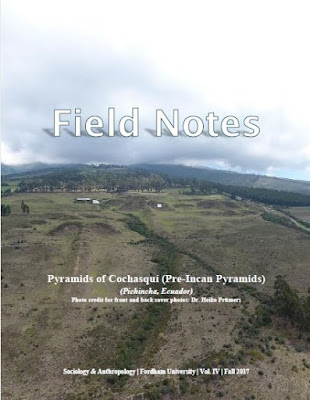On October 24th, 2017, Dr. Julie Kleinman was invited to give a lecture at Cornell University for an event called "Braving Boundaries: Sexual Democracy, Migration, and Kinship at Paris's Gare du Nord." The event took place at Klarman Hall at Cornell University and was co-sponsored by Cornell's departments of Anthropology and Government.
"Abstract: Precarious conditions for migrants in France have led West Africans to develop new strategies for getting by abroad. These tactics sometimes lead them to circumvent the kin networks that allowed for their migration in the first place. In this context, the urban milieu of the Gare du Nord railway station in Paris provides a new site for West Africans—who often call themselves “adventurers”—to come of age. To fully succeed, these new strategies must be negotiated in relation to reciprocity and obligations towards village kin networks, presenting a challenge to migrants and their communities. As migrants seek relationships with French women they meet at the station, they also confront the contradictions of what Eric Fassin calls France’s “sexual democracy.” I will explore how their practices lead to novel forms of social reproduction that transform their own kin relations and also challenge the boundaries inscribed in this French public space."
"Abstract: Precarious conditions for migrants in France have led West Africans to develop new strategies for getting by abroad. These tactics sometimes lead them to circumvent the kin networks that allowed for their migration in the first place. In this context, the urban milieu of the Gare du Nord railway station in Paris provides a new site for West Africans—who often call themselves “adventurers”—to come of age. To fully succeed, these new strategies must be negotiated in relation to reciprocity and obligations towards village kin networks, presenting a challenge to migrants and their communities. As migrants seek relationships with French women they meet at the station, they also confront the contradictions of what Eric Fassin calls France’s “sexual democracy.” I will explore how their practices lead to novel forms of social reproduction that transform their own kin relations and also challenge the boundaries inscribed in this French public space."
Dr. Kleinman is an Assistant Professor of Anthropology at Fordham University. Her research examines how migration changes urban spaces in France and francophone West Africa. She is currently completing her book manuscript on Paris’s Gare du Nord railway station, Borders in the Capital: Public Space, Migration, and the Making of an African Hub in Paris. Since 2013, she has been doing fieldwork in Mali on the political, social, and life course transformations engendered by what many West African migrants call their "adventure" abroad. Her work has been funded by the SSRC and the Mellon Foundation and has received paper prizes from the Society for the Anthropology of Europe and the Society for Urban, National, and Transnational/Global Anthropology. In 2018, Dr. Kleinman will be a Hutchins Center Du Bois Research Fellow at Harvard University.





